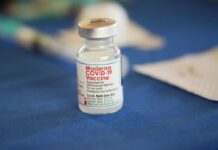
In last week’s Your Health Matters, we discussed the different types and prevalence of strokes. This week I want to guide you through some steps you can take to help prevent them.
First off, maintaining a healthy weight and limiting your saturated fat intake is a good start. Eating a diet rich in fruits and vegetables, daily exercise, controlling blood pressure and diabetes and regular checkups with your doctor are also important steps you can take for stroke prevention. A healthy weight is different for everyone and if you are not sure if you have a healthy weight, you can calculate your body mass index through the CDC’s Assessing Your Weight Website.
Walking an hour or two every day may decrease the risk of stroke by one-third. Taking a short walk after meals can help blunt the immediate glucose spike and significantly decrease the level of insulin in our bloodstream. Insulin is the hormone that reduces the circulating glucose in our blood and helps our cells take up the glucose where it is used to produce the energy our body needs. It is the main source of fuel for our brain.
Stopping smoking and limiting alcohol intake is also very important for a healthy lifestyle and stroke prevention.
MORE Strokes: What you should know and watch out for
The high cost of strokes
As we discussed previously, the incidence of strokes in people under the age of 65 is increasing. There is an undeniable link between stress, heart disease, and strokes. Stress can cause the heart to work harder, increase blood pressure and increase fat and blood sugar levels in the blood. This can cause clots to form and travel to the heart or brain resulting in a heart attack or stroke.
A recent study by the National Library of Medicine shows that the average cost of inpatient stroke treatment ranges from $16,000 to $62,000 depending on the type of stroke. Between 2005 and 2050, it’s estimated that a staggering $1.52 trillion for non-Hispanic Whites, $313 billion for Hispanics and $319 billion for Blacks will be spent on stroke treatment and rehabilitation in the United States. Additionally, the American Heart Association suggests the direct medical cost of strokes to increase by 238% between 2010 and 2030.
By making a few changes every day in our diets, increasing our activity levels, taking our prescribed blood pressure medication, quitting smoking, and reducing our intake of alcohol, we can go a long way to prevent the devastating effects of stroke on ourselves and society.
In future articles, we will discuss the impact of stress, not only on our hearts and brains but our overall health and well-being.

About the author: Tracy Backer is a Registered Nurse who has worked in the medical field for 39 years. Her specialty is critical care nursing. She is employed by Habersham Medical Center in Demorest. A University of North Georgia Nursing School graduate and Habersham County native, Tracy recently returned home to Northeast Georgia from California. She joins the Now Habersham team as a medical columnist for Your Health Matters. She can be reached at [email protected].







